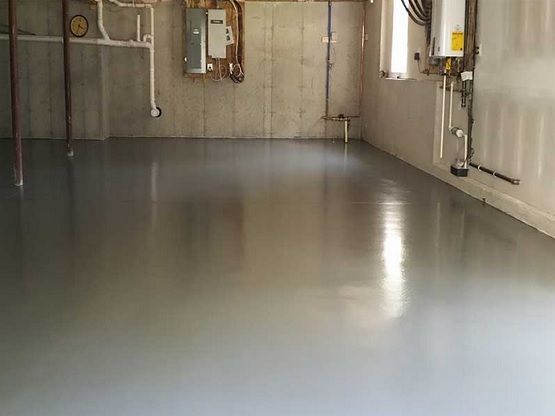Basement Waterproofing and Foundation Repair
1000’s of completely satisfied customers can’t be wrong! In fact, they rave about us. Being family-owned and operated for over two decades has provided Select Basement Waterproofing a level of confidence that the industry is now judged by. Through our relentless customer service, we strive to be New Jersey’s safest and most proactive waterproofing contractor. Unlike the other companies, these are REAL referrals, with problems just like yours (and even worse!) that we have effectively solved. Being family-owned and operated, we pride ourselves on the 17 years of experience served in NJ with the high-quality work we have performed. Over 1000 completely satisfied customers can’t be wrong! In fact, they rave about us. Select Basement Waterproofing is the areas premier basement waterproofing, foundation repair and crawlspace waterproofing company. In an area with an abundance of older homes, it is a good idea to have your home inspected and if necessary waterproofed by a professional. Select Basement Waterproofing provides services in the metro area, as well as the surrounding suburbs. Contact Select Basement Waterproofing for a FREE Estimate (732) 526-7770.
Facts About Trenton, NJ
Trenton, city and capital of New Jersey, U.S., seat (1837) of Mercer county, and industrial metropolis at the head of navigation on the Delaware River. It lies 28 miles (45 km) northeast of Philadelphia, Pennsylvania, and about 55 miles (89 km) southwest of New York City.
The original settlement (1679) by Mahlon Stacy and other Quakers was known as The Falls and later Stacy’s Mills. In 1714 William Trent, a Philadelphia merchant, bought 800 acres (324 hectares) from Stacy’s son and laid out the town, which was named in his honour in 1719. On Christmas night 1776, General George Washington led the American army of 2,400 soldiers across the ice-choked Delaware at McKonkey’s Ferry (now commemorated by Washington Crossing State Park), just north of Trenton, and the next morning attacked the 1,500 Hessian troops under Colonel Johann Rall who were quartered in the town. The surprise attack resulted in a victory for the Americans. On January 2, 1777, the British general Lord Cornwallis arrived in Trenton, but Washington withdrew to Princeton, New Jersey, where he defeated a British detachment under Colonel Charles Mawhood. Trenton served as the temporary capital of the United States in 1784 and again in 1799; the city became the capital of New Jersey in 1790.
The completion of the Delaware and Raritan Canal and the Camden and Amboy Railroad in the 1830s spurred Trenton’s industrial development, which since the 1730s had included the iron industry. The industrialist Peter Cooper opened a rolling mill in Trenton in 1845; in 1848 the engineer John Roebling moved his wire mill there, where he manufactured cable for suspension bridges, including the Brooklyn Bridge; and in 1868 Cooper’s partner, Abram Stevens Hewitt, introduced into the United States the open-hearth process for making steel. Potteries have operated in Trenton since 1723, and in the late 19th century Walter Scott Lenox developed an international reputation with the fine china his firm made in Trenton. The railroad, trucking, rubber, plastics, metalworking, electrical, automobile parts, glass, and textile industries are now among the city’s foremost enterprises.
The College of New Jersey was founded in Trenton in 1855 and is now in nearby Ewing; other colleges include Rider University (1865) in nearby Lawrenceville and Mercer County Community College (1966). The revolutionary battle is commemorated by a 150-foot (45-metre) monument topped by a statue of Washington. The restored William Trent House (1719) is the city’s oldest landmark. The gilt-domed State House (1792) is adjacent to the New Jersey State Cultural Center, which contains a museum, auditorium, planetarium, and state library. The Old Barracks (1758–59; erected as winter quarters for British troops during the French and Indian War) and the Old Masonic Lodge (1793) are in Stacy Park; the Douglass House (1766), where Washington held a council of war (January 2, 1777), has been moved several times and is now in the Mill Hill historic district. The War Memorial Building (1931–32) is used for the inauguration of New Jersey governors. Inc. borough and town, 1745; city, 1792. Pop. (2000) 85,403; Trenton-Ewing Metro Area, 350,761; (2010) 84,913; Trenton-Ewing Metro Area 366,513.
History
The earliest known inhabitants of the area that is today Trenton were the Lenape Native Americans. The first European settlement in what would become Trenton was established by Quakers in 1679, in the region then called the Falls of the Delaware, led by Mahlon Stacy from Handsworth, Sheffield, England. Quakers were being persecuted in England at this time and North America provided an opportunity to exercise their religious freedom.
WHERE TO FIND US:
SELECT BASEMENT WATERPROOFING
275 Rte 79 Morganville, NJ 07751
Phone: (732) 526-7770
Places of interest in Trenton





